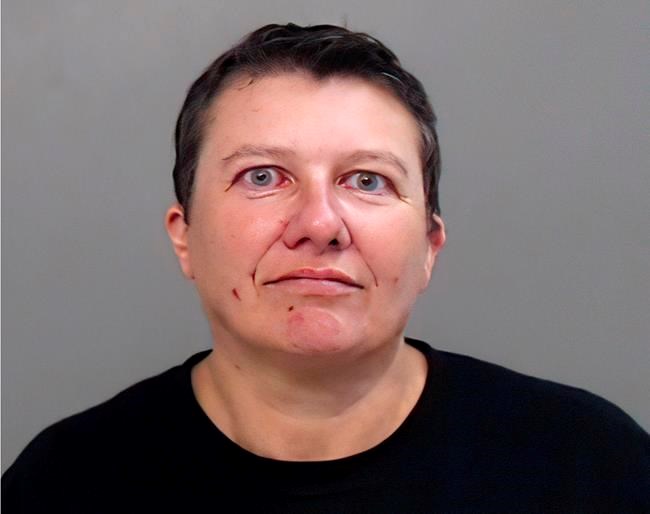A Quebec woman accused of sending a poisoned letter to United States President Donald Trump will be held in a Washington, D.C.-area jail until her trial.
Pascale Ferrier, who appeared in a Washington, D.C., district court by teleconference Wednesday, faces a single charge of threatening the president.
Federal Magistrate Judge Robin Meriweather sided with prosecutors and ruled that Ferrier would pose a danger to the community if she were released. Meriweather said she's worried Ferrier “could take further actions” to carry out the threats she is alleged to have made.
"The threats to the current president of the United States are very serious," the judge said.
U.S. authorities claim Ferrier mailed letters containing the poison ricin to the White House as well as to law enforcement and corrections officials in Texas, where she was detained for two months in the spring of 2019.
The letters contain the threat that if the poison didn’t work, the writer would “find a better recipe for another poison” or “use my gun.”
A previous court hearing heard Ferrier had a loaded semi-automatic handgun and nearly 300 rounds of ammunition in her vehicle when she was arrested at the U.S. border on Sept. 20.
Prosecutor Michael Friedman said that was a sign she was taking “concrete steps” to carry out her threats.
But defence lawyer David Bos – who argued that Ferrier should be released while she awaits trial – said that the fact that Ferrier told border officers she was wanted by the FBI for sending letters containing ricin suggests she was trying to “get to the bottom of this.”
“At best, what we know is that Ms. Ferrier knew she was being investigated and surrendered,” he said. Ferrier told border officers she had a weapon and there was “no confrontation,” Bos said. She is not facing any weapons-related charges.
Bos argued that Ferrier should be released, citing the fact that the 53-year-old has no criminal record and that the single charge she faces carries a maximum penalty of five years in prison, making it relatively minor.
Ferrier has “lived a law-abiding life for over 50 years,” he said.
But in her oral ruling, Meriweather said that despite the short maximum sentence, the crime Ferrier is accused of is "very dangerous." She also cited "strong evidence" introduced by the prosecution.
Friedman had told the court that Ferrier’s fingerprints were found on the letters sent to Texas and that while no usable prints were found on the letter sent to the White House, the letters have “nearly identical” and “unique language.”
Friedman said that Canadian authorities found ricin during a search of Ferrier's Montreal-area home.
The prosecutor told the court that federal investigations are still underway in Washington, D.C., and Texas that could lead to further charges for Ferrier.
This report by The Canadian Press was first published Nov. 4, 2020.
———
This story was produced with the financial assistance of the Facebook and Canadian Press News Fellowship.
Jacob Serebrin, The Canadian Press


